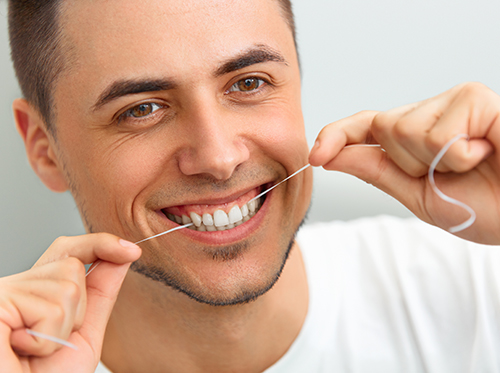What is gingivitis, and how can I treat it?
October 18th, 2017

Gingivitis is an early stage of gum disease that results when bacteria in your mouth cause inflammation in your gums. This is a common condition, and you can treat it effectively if you are aggressive. Otherwise, it could develop into more advanced gum disease, or periodontitis, and you could lose one or more teeth.
Watch for symptoms of gingivitis so you can ask Dr. Bill Whitley for help as soon as you need it. Strategies for treating gingivitis include thoroughly cleaning your teeth and assessing the scope of your gingivitis and how serious the problem is.
Gingivitis: Early Gum Disease
Your mouth contains many bacteria that form plaque, which is a sticky substance. You can get rid of plaque by brushing well, but if you don’t, it can build up on your teeth and form tartar. Bacteria can make your gums inflamed and cause pain and bleeding, or gingivitis. Other symptoms include loose teeth, bad breath, receding gums, and sensitive teeth. You’re at higher risk for gingivitis if you’re a smoker, if you have a weakened immune system, or if you have diabetes.
Assessment and Diagnosis
If you think you recognize the symptoms of gingivitis, contact our Dallas office to make an appointment. We will ask you about your risk factors for gingivitis and examine your teeth and mouth for signs of red and swollen gums. We may also measure the pockets around your teeth. If they are larger than usual, your gingivitis may be more advanced. Finally, will take some X-rays to get a picture of the bone structure of your jaw.
Deep Cleaning
You can’t get rid of the tartar on your teeth just by brushing at home. Instead, you need a deep cleaning consisting of scaling and root planing. Scaling involves scraping the plaque off of your teeth, both below and above the line of your gum. In root planing, the rough surfaces of your teeth where tartar is more likely to build up are smoothed. A laser may be used to make the procedure more effective, more accurate, and more comfortable.


